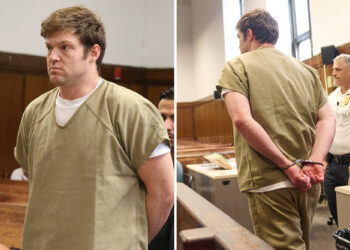
An optimist will look at the discovery-law “deal” that Gov. Hochul struck with the New York Legislature during budget negotiations and point to some “wins.”
Yes, language tweaks now slightly narrow the amount of valueless “evidence” prosecutors must rapidly collect and softens some of their time pressures.
Prosecutors will also have certain leeway to summarize pieces of evidence that they are still working to obtain — even if they haven’t gotten their mitts on it in the allotted time.
And judges can now assess prosecutors’ diligence in this collection by evaluating the “totality” of their effort — and not, more granularly, gauging their diligence in scrounging “item by item” for each individual document, video, piece of metadata, etc.
Provided judges are willing to use these new latitudes in the prosecution’s favor, these shifts are good.
They may help inch the NYC case-dismissal rate down from 62%, back toward the 42% rate before the extreme 2020 discovery law.
In theory, this could correspondingly help boost the conviction rate from its abysmal current 26% toward the former 47% rate.
Other positive tweaks put more onus on defense attorneys to do right.
The bill expands their obligation to review evidence thoroughly, to proactively obtain evidence themselves, and to be more specific and collaborative if they claim evidence is missing.
The amended law also restores a tinge more confidentiality for information like witness home addresses. And it makes grand-jury scheduling more reasonable.
Law bias toward defendants
A realist, however, will look at this deal and say: Hochul asked for way too little and got less.
New York’s discovery regime will remain the nation’s most biased toward defendants — and most wasteful of taxpayer money and public-servant manhours.
Prosecutors will still need to triage their caseloads, crippled by what remains an unreasonable compliance burden.
This ensures less justice for the victims of crime — particularly “lower level” crimes like domestic violence and drunken driving — and that criminals, too, will endure inconsistent and arbitrary outcomes.
Zooming out, the positive but marginal improvements in this bill create a political reality in which New York won’t reassess our radically pro-criminal rules of evidence collection for many moons.
In a state where “progressive” legislators dominate policymaking — often pushed even further left by their AOC-adoring staffers — these modest but substantive improvements to New York’s discovery law may be something to celebrate.
But the reality that Albany is ruled by an ideological distaste for imposing criminal consequences on those who break the law remains a big downer.
Hannah E. Meyers is a fellow and the director of policing and public safety at the Manhattan Institute.



























